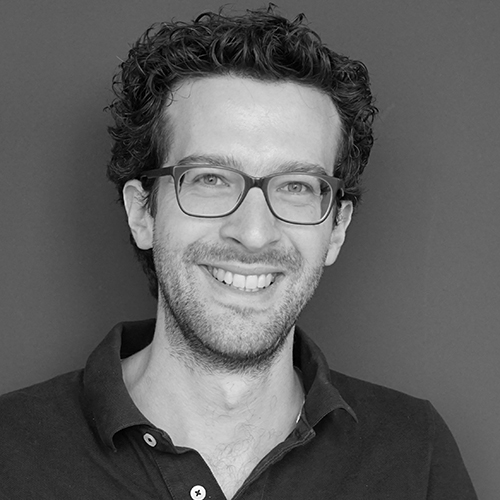3rd International Workshop on Robotics Software Engineering (RoSE’21)
- Co-located with ICSE 2021
- Virtual
- June 2, 2021
RoSE 2021 is over and was a great success! A big thanks to all speakers, panelists and visitors that made the workshop an exciting and diverse event, involving around 40 participants. The recorded talks are available here (list is being expanded):
https://www.youtube.com/playlist?list=PLLbZZOioDh3Nuazv4YJ7LCnuUd793Fp-f
Theme & Goals
Increasingly, challenging domains employ robotic applications. Yet, Robotics still is one of the most challenging domains for software engineering. Deploying robotics applications requires integrating solutions from experts of various domains, including navigation, path planning, manipulation, localization, human-robot interaction, etc. Integration of modules contributed by respective domain experts is one of the key challenges in engineering software-centric systems, yet only one of the cross-cutting software concerns crucial to robotics. As robots often operate in dynamic, partially observable environments additional challenges include adaptability, robustness, safety, and security.
The goal of RoSE 2021 is to bring together researchers from participating domains with practitioners to identify new frontiers in robotics software engineering, discuss challenges raised by real-world applications, and transfer latest insights from research to industry. RoSE 2021 will solicit contributions from both academic and industrial participants, thus fostering active synergy between the two communities.
Topics of Interest
RoSE 2021 seeks contributions addressing, but not limited to, the following topics related to robotics software engineering:
- Analysis of challenges in robotic software engineering
- Architectures that lead to reusable robotic software
- Challenges for defining and integrating domain-specific languages for the design of robotic systems
- Continuous integration and deployment in robotics
- Identification and analysis of design principles promoting quality of service (e.g., performance, energy efficiency)
- Engineering the collaboration of multiple (heterogeneous) robots
- Machine learning for safety-critical robotic systems
- Metrics to measure non-functional properties (e.g., robustness, availability, etc.) and their application in robotic software
- Best practices in engineering robotic software
- Variability, modularity, and reusability in robotic software
- Validation and verification of robotic software
- Processes and tools supporting the engineering and development of robotic systems
- State-of-the-art research projects, innovative ideas, and field-based studies in robotic software engineering
- Lessons learned in the engineering and deployment of large-scale, real-world integrated robot
Keynotes
We are happy to host the following keynote talks.
 Moritz Tenorth - CTO at Magazino GmbH
Moritz Tenorth - CTO at Magazino GmbH
Software engineering for autonomous logistics robots - Autonomous robots are more and more deployed in human environments, logistics, collaborative manufacturing applications, agriculture, or last-mile delivery tasks. These environments are characterized by dynamic changes, uncertainty from sensor readings and actuator movements, and disturbances by humans and other agents. That is, there are plenty of situations in which a robot needs to autonomously decide what to do in order to successfully accomplish its tasks. Traditional methods for programming robots often cannot provide this autonomy because they are lacking perception and decision-making capabilities. We believe that new, behavior-based programming methods are required to enable robots to robustly adapt and properly react to such unforeseen situations. However, when developing, deploying and operating products that exhibit highly autonomous behavior, new challenges arise: For guaranteeing a certain level of behavioural quality, novel testing and QA structures need to consider the complexity and non-determinism in the system. When operating a fleet of autonomous robots, the role of a robot manufacturer shifts from shipping products towards operating a distributed system of embodied computers connected to the Internet – which creates a number of opportunities, but also challenges to address.
 Roger Kulläng - Senior Specialist Software Architecture at Modular Management AB
Roger Kulläng - Senior Specialist Software Architecture at Modular Management AB
Challenges in transforming a 20 years old embedded robot controller software design to a modern modular design and using agile development practices - The current generation of ABB robot controllers contains an embedded software, RobotWare, that saw first light already in 1994 with the S4 robot controller. Since then RobotWare has been continuously developed, refactored and refurbished to comply with the demands of the modern factory floors of today as well as the collaborative robot applications (Cobot) and flexible production facilities of the future. In the presentation the modular and agile approach to achieve this will be presented as well as the challenges that have been addressed and are foreseen.
Workshop Program
Times are displayed in Central European Summer Time (CEST): Amsterdam, Berlin, Bern, Rome, Stockholm, Vienna.
| Time | Title | Who |
|---|---|---|
| 10:00 AM | Welcome | RoSE organizers |
| 10:15 | Keynote: Challenges in transforming a 20 years old embedded robot controller software design to a modern modular design and using agile development practices | Roger Kulläng |
| 11:00 | Session 1: Modelling and specification | |
| Assumptions and Guarantees for Composable Models in Papyrus for Robotics | Jabier Martinez, Alejandra Ruiz, Ansgar Radermacher and Stefano Tonetta | |
| Modelling the Component-based Architecture and Safety Contracts of ArmAssist in Papyrus for Robotics | Jabier Martinez, Alejandra Ruiz, Ainara Garzo, Thierry Keller, Ansgar Radermacher and Stefano Tonetta | |
| Power and Energy Communication Services for Control-software Models | Reynaldo Cobos Mendez, Douwe Dresscher and Jan Broenink | |
| Specifying QoS Requirements and Capabilities for Component-Based Robot Software | Samuel Parra, Sven Schneider and Nico Hochgeschwender | |
| 12:00 | Lunch break | |
| 01:00 PM | Keynote: Software engineering for autonomous logistics robots | Moritz Tenorth |
| 01:45 | Session 2: Architecture | |
| System Modes - Digestible System (Re-)Configuration for Robotics | Arne Nordmann, Ralph Lange and Francisco Martín Rico | |
| Architecture for Emergency Control of Autonomous UAV Ensembles | Martin Schörner, Constantin Wanninger, Alwin Hoffmann, Oliver Kosak and Wolfgang Reif | |
| Skill-Based Architecture Development for Online Mission Reconfiguration and Failure Management | Alexandre Albore, David Doose, Christophe Grand, Charles Lesire and Augustin Manecy | |
| Towards a Service-Oriented Architecture for Autonomous Drone Operations in U-Space | Miguel Campusano, Kjeld Jensen and Ulrik Schultz | |
| 02:45 | Break | |
| 03:00 | Session 3: Languages and tools | Chair: Andreas Wortmann |
| Considerations for using Block-Based Languages for Industrial Robot Programming – a Case Study | Christoph Mayr-Dorn, Mario Winterer, Christian Salomon, Doris Hohensinger and Rudolf Ramler | |
| The High-Assurance ROS Framework | André Santos, Alcino Cunha and Nuno Macedo | |
| A Modeling Tool for Reconfigurable Skills in ROS | Darko Bozhinoski, Esther Aguado, Carlos Hernández Corbato, Mario Garzon Oviedo, Ricardo Sanz and Andrzej Wasowski | |
| Inferred Interactive Controls Through Provenance Tracking of ROS Message Data | Thomas Witte and Matthias Tichy | |
| 04:00 | Break | |
| 04:15 | Interactive Panel: Best practices for Robotic Software Engineering Panelists: Robert Bocchino (NASA) Arne Nordmann (Bosch) Allison Thackston (Waymo) Andreas Angerer (XITASO) [FREE SPOT] (see call on Twitter) Panel moderator: Theresa Liebich (XITASO) |
All participants |
| 05:45 | End of RoSE 2021 |
Submission Guidelines
Prospective participants are invited to submit
- research papers presenting novel contributions on advancing software engineering in robotics (max. 8 pages);
- challenge showcase papers describing robotics challenges considered insufficiently addressed from an industry perspective (max. 6 pages);
- lessons learned papers describing lessons learned in the collaboration between the two communities of software engineering and robotics (max. 6 pages);
- vision papers on the future of software engineering in robotics (max. 4 pages);
- tool and project papers on software engineering in robotics (max. 4 pages).
Workshop papers must follow the ICSE 2021 Format and Submission Guideline, but will use a single blind submission process. All submitted papers will be reviewed on the basis of technical quality, relevance, significance, and clarity by the program committee. All workshop papers should be submitted electronically in PDF format through the EasyChair workshop website. Accepted papers will become part of the workshop proceedings.
Important Dates
- Workshop paper submissions due:
January 12, 2021We are providing a grace period of 10 days for the authors who submit a draft of their papers by the deadline. So, the authors who submit their paper draft by the 19th of January (AoE) will have until the 29th of January (AoE) to polish and improve their paper. The submission of the paper draft by the 19th of January (AoE) is strictly required. - Notification to authors: February 22, 2021 (AoE time)
- Camera-ready copies due: March 12, 2021 (AoE time)
Organizing Committee
- Andreas Angerer (XITASO GmbH, Germany)
- Federico Ciccozzi (Mälardalen University, Sweden)
- Ivano Malavolta (Vrije Universiteit Amsterdam, The Netherlands)
- Andreas Wortmann (University of Stuttgart, Germany)
Program Committee
- Alwin Hoffmann, University of Augsburg, Germany
- Andrzej Wasowski, IT University of Copenhagen, Denmark
- Arne Nordmann, Robert Bosch GmbH, Germany
- Bradley Schmerl, Carnegie Mellon University, USA
- Carlos Hernandez Corbato, TU Delft, The Netherlands
- Charles Lesire-Cabaniols, French Aerospace lab (ONERA), France
- Daniel Sykes, Ocado Technology, UK
- Darko Bozhinoski, TU Delft, The Netherlands
- David Garlan, Carnegie Mellon University, USA
- Davide Brugali, Università degli Studi di Bergamo, Italy
- Davide Di Ruscio, Università degli Studi dell’Aquila, Italy
- Ettore Merlo, Ecole Polytechnique of Montreal, Canada
- Floris Erich, National Institute of Advanced Industrial Science and Technology, Japan
- Francesco Ferro, Pal Robotics, Spain
- Holger Giese, Hasso Plattner Institute at the University of Potsdam, Germany
- Jan Broenink, University of Twente, The Netherlands
- Javier Camara, University of York, UK
- Jesús Martínez, Universidad de Málaga, Spain
- John-Paul Ore, University of Nebraska-Lincoln, USA
- Juergen Dingel, Queen’s University, Canada
- Lorenzo Natale, Istituto Italiano di Tecnologia (IIT), Italy
- Michel Albonico, Vrije Universiteit Amsterdam, The Netherlands | Federal University of Technology - Parana (UTFPR), Brazil
- Neil Ernst, University of Victoria, Canada
- Patrizio Pelliccione, Chalmers University of Technology, Sweden
- Ricardo Sanz, Universidad Politecnica de Madrid, Spain
- Rogardt Heldal, HLV, Norway
- Sebastian Wrede, CoR-Lab, Bielefeld University, Germany
- Simos Gerasimou, York University, UK
- Ulrik Schultz, University of Southern Denmark, Denmark